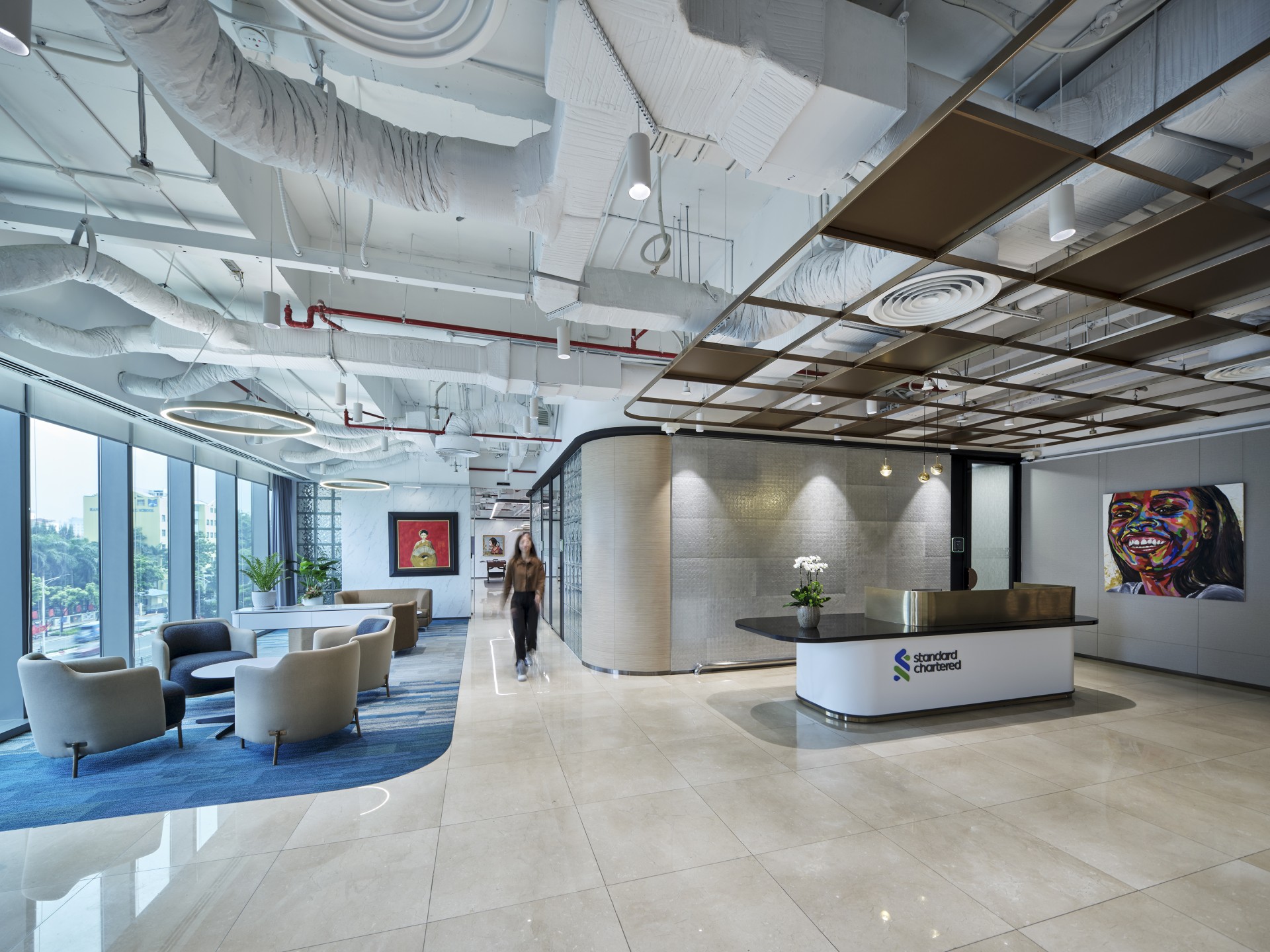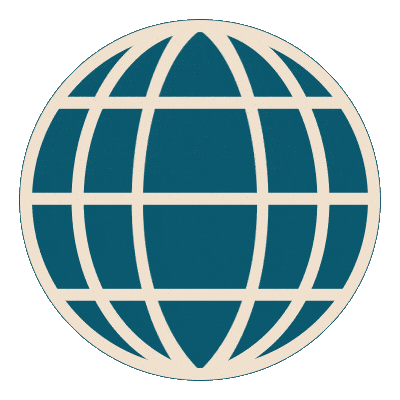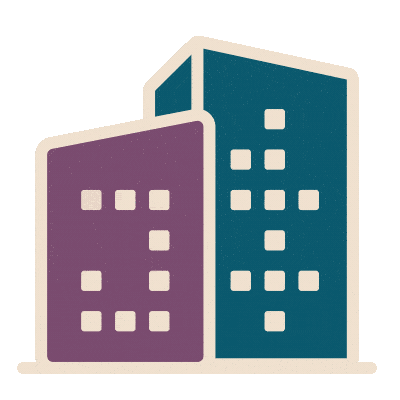Standard Chartered’s Approach to Creating Healthier Workplaces Globally for People and Performance
IWBI Signature Interview Series: Q&A with the global bank’s Head of Real Estate on how its holistic approach integrates people-first strategies into its real estate roadmap
Multinational companies are uniquely positioned to advance and scale health and well-being across their global footprint. One standout example is Standard Chartered, which is leading by example through its widescale adoption of the WELL Building Standard (WELL) by way of WELL Certifications, as well as WELL ratings. The Bank is bringing health-focused strategies to its buildings and business practices to support both colleagues and clients around the world. With more than 800 locations across 53 markets totaling 8.5 million square feet of occupied space, Standard Chartered serves as a model for people-first workplaces, no matter where employees are based.
To date, Standard Chartered has achieved the WELL Health-Safety Rating across 158 global locations and the WELL Equity Rating for nine offices spanning Mumbai, Singapore, Lusaka, Hanoi, Taiwan, Dubai, and Warsaw. This leading global financial institution continues to break new grounds in advancing health and well-being, as demonstrated by its recent achievement of the first-ever WELL Equity Rating in Africa for its head office in Lusaka, Zambia, as well as earning the first WELL Certified designation in Vietnam for its Capitol Tower in Hanoi. These accolades reinforce the bank’s strong track record of leadership in well-being.

By applying WELL’s people-first strategies across its organisation via the WELL at scale pathway, Standard Chartered is deploying science-backed global well-being strategies and solutions across the organisation and its workplaces. Through evidence-based design and operational protocols and management policies in WELL, the bank is able to support both physical and mental health of its stakeholders. The WELL at scale approach also provides a framework for the bank to chart progress across some of its broader corporate strategies, particularly in social sustainability.
To bring the story to life, Jack Noonan, Senior Vice President at the International WELL Building Institute Asia Pacific, sits down and talks with Shelley Boland, Global Head of Corporate Real Estate & Services at Standard Chartered. In this conversation, Shelley shares how Standard Chartered is putting people at the centre of its global real estate strategy, and reflects on the milestones, insights and impact achieved along the way.
Q: What are the key factors that drove Standard Chartered to adopt the WELL at scale approach?
A: At Standard Chartered, our commitment to employee and client health, safety, and well-being is integral to our strategic focus on serving our global clients, who expect consistent, high standards wherever they engage with us. The WELL at scale approach has been an invaluable tool in helping us deliver people-first places across our portfolio. It ensures we consistently upkeep high-quality built environments. This is crucial for colleagues and clients who engage with us across multiple regions, knowing that their health and well-being are always prioritised.
Second, WELL at scale aligns with our broader workplace investment strategy, which includes a $1.5 billion commitment to supporting the Bank’s wealth management strategy over five years. Part of this investment focuses on creating indoor environments that support both client experience and colleague well-being, enhancing productivity and helping us reach our growth goals in this segment.
Finally, our WELL journey is fully aligned with our Environmental, Social and Governance (ESG) objectives. Investing in health and well-being not only enhances our employee satisfaction and performance, it also strengthens our ESG outcomes. Engaging WELL at scale reinforces our commitment to excellence and helps us deliver on the expectations of our clients while standing out in competitive markets through the validation by the globally recognised WELL Standard.
Q: While implementing the WELL strategies across the enterprise, what worked best to help achieve your goals?
A: Supporting talent attraction and retention is fundamental to our goal of sustainable high performance and building organizational resilience. Offering market-leading benefits, people-first policies, and aligning our workplace design and operations focusing on health promotion, ill health prevention rather than cure through the recommendations from the WELL framework have all been critical to our success.
I think clarity of purpose and how the program supports our real estate strategy is also important. We ensure our three major workplace partners – Cushman & Wakefield, JLL, and Turner & Townsend – feel as invested in this program as we are. We aim to build high performing workplaces, and we’ve found that strong leadership sponsorship, a clearly defined work plan with aligned teams, and celebrating our achievements along the way have all helped bring this vision to life.

Q: Are there lessons you learned that can help shape the future approach to well-being?
A: While we have made meaningful progress in creating workplaces that support the well-being of our colleagues at Standard Chartered, we recognise that there is still more we can do to improve employee experience and enable everyone to bring their best self to work.
The WELL Building Standard encompasses various concepts – Air, Water, Nourishment, Movement, Light, Thermal Comfort, Sound, Materials, Mind and Community – to create holistic environments, and we aim to bring as many of the features as possible into our own design and operational policies.
For example, we conduct annual indoor air quality testing across our premises. Building on this, we are now exploring the use of air quality sensors in select offices to enable daily monitoring of key parameters. Studies show that indoor air quality directly impacts workplace productivity. In particular, one study looked at how creative thinking changes with different indoor environmental conditions. It showed that for every 100-ppm increase in CO2, the participants showed 3 – 11% decrease in the creativity involved for office tasks. This is just one example showing that maintaining high indoor air quality is crucial to supporting employee performance.
Another area of focus is promoting mental well-being in line with the WELL Mind concept. We collaborate with our HR partners and have recently launched an enhanced Employee Assistance Programme (EAP) called Unmind. The programme is focused on prevention as well as cure. It offers free and confidential support, enabling employees to connect virtually with a coach, counsellor or psychotherapist of choice. It also includes a 24/7 helpline providing immediate access to mental health, legal or financial support and a range of resources to help line managers support their teams.
We believe that employee experience is shaped by their relationship with line managers. Therefore, we introduced Unmind Manager, which provides resources to help managers handle difficult conversations, support their teams through changes, and build mental health literacy.
Looking ahead, neurodiversity is an area where we want to improve. Flexible working has numerous benefits but can also present challenges for neurodivergent team members if workplaces are not designed to accommodate sensory sensitivities. Here, even small improvements, such as better signage and wayfinding, or providing enough space for quiet work, and ways for colleagues to personalise their sensory preferences, can make a big difference for those with neurodivergent needs.
Q: Can you cite some local stories which speak to regional characteristics and innovative steps your team took to achieve certain WELL strategies?
A: Our recent Gold level WELL Certification for our Capitol Head Office in Hanoi, Vietnam is a great example. Achieving the first WELL Certification in the country shows our commitment to fostering positive environments where employees feel supported and energized.
As the first of its kind in the country, our project in Hanoi required a multi-disciplinary collaboration between our landlord, project management, design, and HR teams, setting a new benchmark for healthy, sustainable workplaces in Vietnam. Some of the key features of this groundbreaking certification include:
-
Advanced indoor air quality management through real-time monitoring systems to promote optimal health outcomes for occupants, something we are now considering for other locations as well;
-
Comprehensive water quality systems that provide purified water to encourage hydration;
-
Human-centric design integrating natural elements such as generous daylight exposure across the office from large windows and open floor plans and indoor garden areas with soft natural lighting to promote employee well-being, satisfaction, and productivity.
-
Biophilic designs that thoughtfully connect occupants with nature.

To catch up on new WELL ratings, certifications, and renewals, we appointed a WELL at scale Lead through our recent partnership with Cushman and Wakefield. The goal was to drive efficiency, improve cooperation, and enable our teams to focus on activities that deliver value to our colleague and clients.
Q: How do your employees and top leadership respond to the people-first approach you took by leveraging WELL, and what can we expect from Standard Chartered moving forward?
A: Our people-centered goals are a key enabler of the Bank’s performance and employee well-being. We are confident that our efforts are perceived positively. We recently included our achievements in our annual Diversity, Equality and Inclusion Impact Report 2024. The report underscores our commitment to building a culture of inclusion as a key enabler for how we execute our business strategy, which is to connect our cross-border and affluent clients to a network offering unique access to sustainable growth opportunities and returns across the markets in which we operate.
Since 2018, our internal Annual Employee Engagement survey has demonstrated a +5.14 ppt overall increase in our inclusion index (currently 82.08 per cent), with notable improvement of +3 ppt ability to choose a reasonable balance between personal and work life (currently 78.0 per cent).
We have a unique role to play as a sustainability steward in corporate real estate. This year, our goal is to expand our WELL Equity Rating to another 11 main buildings, bringing the total to 20, encompassing approximately 50% of our colleagues.
We also aim to have our new Marina offices in Chennai, India, WELL and LEED certified at the Platinum level – a first across our footprint and a bold statement about sustainable banking infrastructure in 2025 and beyond. At Marina, we’re integrating systems that not only minimise energy use but also optimise it in real-time. Our building will adapt its lighting and cooling based on actual usage patterns. We’re also harvesting rainwater, maximising natural light, and creating green spaces that double as carbon sinks and wellness zones.
Our WELL journey over the years reflects our commitment to building a brand that prioritizes sustainability and well-being. As we look ahead, we remain committed to scaling the impact of WELL across our global portfolio — fostering healthier environments, supporting our people, and advancing our role as a purpose-driven organization.







